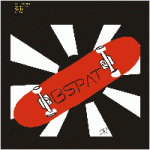![]() On the Seventh Day of Christmas Crime Prevention the RCMP said to me, “When purchasing gifts online make sure you protect your identity.”
On the Seventh Day of Christmas Crime Prevention the RCMP said to me, “When purchasing gifts online make sure you protect your identity.”
– Shop only from your home computer – it’s much safer than shopping at a terminal
– Use different user ID and passwords for different accounts
– Go directly to a store’s website by manually typing its address into your web browser
– Don’t click on links in an e-mail message even if you know who sent it
– Verify secure connections. When shopping on-line, do not enter any financial information if you see a broken-key or open padlock symbol on your Internet browser – this means the transaction is not secure and could be intercepted by a third party. When the key is complete or the padlock is locked, your browser is indicating a secure transaction
– Consider using a company acting as escrow (reliable third party), a credit card with a low credit limit or a single use payment card– Unlike secure order forms on a web site, e-mail messages are not private. Do not send confidential personal or financial information by e-mail
– Avoid spam (unsolicited marketing e-mail) by being careful about disclosing your e-mail address both on and off-line
– Monitor your bank and credit card and statements online. Electronic statements allow you to review your purchases and payments as they happen rather than waiting until the end of the month to review your paper statement
– Immediately report any discrepancies to your bank or to the company that issued the credit card
The RCMP’s financial crime unit works with banking institutions in the battle against financial crime.
Follow us on Twitter at www.twitter.com/rcmpns.



